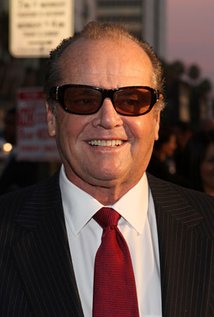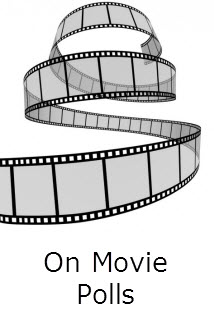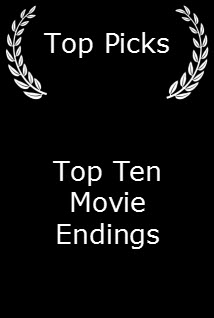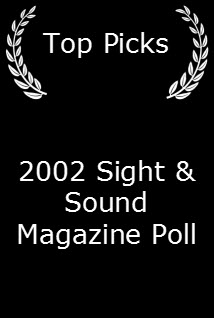2001: A Space Odyssey (1968)


Content by Tony Macklin. Originally published on April 30, 2018 @ tonymacklin.net.
Is 2001: A Space Odyssey the best film of all-time?
This may seem a dubious question, but in 2018 the year of the 50th anniversary of its release, it seems to be heading to that consideration.
For 50 years 2001: A Space Odyssey has been on a transcendent trip.
In 1968 it opened to a load of dismissive reviews. The majority of the elite critics panned it. Pauline Kael, Stanley Kauffmann, John Simon, Renata Adler, and Andy Sarris all disparaged it - some savagely. Both The New York Times and the Washington Post ran negative reviews.
It seemed lost in transition.
But slowly and surely, 2001: A Space Odyssey gained traction and began to ascend.
12 years after his initial negative review, Andy Sarris wrote a favorable reappraisal in the Village Voice. Sarris wrote in a prescient sentence, "2001 now works for me as Kubrick's parable of a future world towards which metaphysical dread and mordant amusement tiptoe side by side." Welcome to 2018.
In 1969 I wrote an essay published in Film Comment in which I attempted to counter the prevailing negation. I argued against Kael's opinion - also held by several other critics - that Kubrick wrote bad dialogue. No, the characters spoke bad dialogue. Stanley just recorded it. The characters were trite and shallow. In 2018 we still only have to listen to talk shows on television or radio to hear a rhapsody of "you knows" and "I means."
2001: A Space Odyssey is a poster film for movies which viewers have to get on their wavelength to appreciate. People don't like what they don't understand. They attack.
The key to understanding Kubrick is to realize his view of humanity. Kubrick saw human nature as more than just fallible. He saw it as callow and banal.
That's not a particularly popular view.
One reason I think I got Kubrick is that I share much of his vision. Nathaniel Hawthorne had one of his characters say, "Evil is the nature of mankind."
No, evil isn't. Hypocrisy is the nature of mankind.
I think that assumption prepares me for Kubrick.
His characters share dullness. He did not cast a gifted actress as Lolita in his 1962 film. She was only provocative in Humbert Humbert's (James Mason) eyes. [How ironic is it that Lyon did go on to have 5 marriages in her actual life?]
Jack Nicholson brought his patented manic energy to Jack Torrance in The Shining (1980), but the line, "All work and no play makes Jack a dull boy" has a piquant irony. The two astronauts in 2001: A Space Odyssey are bland and rote.
I first contacted Stanley when I was contemplating a book on his film Dr. Strangelove or: How I Learned to Stop Worrying and Love the Bomb (1964). He was agreeable, but unfortunately it never came to fruition.
Stanley seemed to appreciate my reviews, although of course he didn't publicly interpret his own work. He left that to lesser mortals. It's ironic that Kubrick has to count on the judgment of them. He's already pretty much dismissed them in his view of society.
Writer Diane Johnson, who with Kubrick co-wrote the screenplay of The Shining, once wrote me that Stanley was pleased with my essay on The Shining which appeared in The Journal of Popular Culture (Bowling Green University).
I have 5 or 6 letters from Stanley. In one to "Tony," he gave me his phone number to call him if I ever was in England. I later - long after Stanley's death in 1999 - gave it as a gift to director Tony Vierra, when he came to Las Vegas to interview me about Eyes Wide Shut (1999). But he's not exactly my alter ego.
Are critics ahead of the populace? Over a couple of days, I recently took a poll in the doughnut shop I inhabit about whether or not people had seen 2001 and what they now thought of it. I asked a baker's dozen (even though there is not such a concept anymore). It's not just a place where old guys read newspapers. The clientele is diverse - in age, gender, and ethnicity. And often tattooed.
It was not what I hoped for. 11 of 13 had never seen the film. One wasn't sure. One woman thought Kubrick was an actor or producer. And one young man asked me, "Is it on any streaming sites?" Of course. Kubrick wants viewers to see it hand-held.
It looks as though the critics will have to keep 2001: A Space Odyssey soaring.
Sight & Sound is a valuable arbiter of cinema. The British magazine has a decadal poll the second year of each decade. In it, critics and directors chose what they think are the best films ever made.
I realize it's a Pyrrhic poll, but it's enlightening. I contributed in 1972, 1982, 1992, and last in 2002. At the beginning I was one of a rare breed. I think only one other USA university educator was included. I was also founder and editor of international journal Film Heritage.
But by 2012, I had lost my cache. I had gone the way of HAL. No longer a valued voter, I was lost in space.
For 50 years Welles's Citizen Kane was the #1 choice of the voters. Then in 2012 Hitchcock's Vertigo replaced it as top film.
The next poll will be in 2022.
In 2002 in Sight & Sound, I chose 2001: A Space Odyssey as 7th.
It appeared as 6th over-all in the poll. In 2012 it again was 6th.
But for the last few years, I've predicted that in 2022, there will be another change at the top.
2001: A Space Odyssey will be chosen as Best Film of All-time.
It has a chance.
The apish critics are gone.
But I still believe in Star-Children.


























